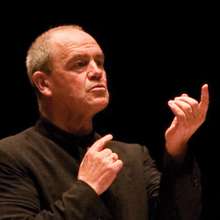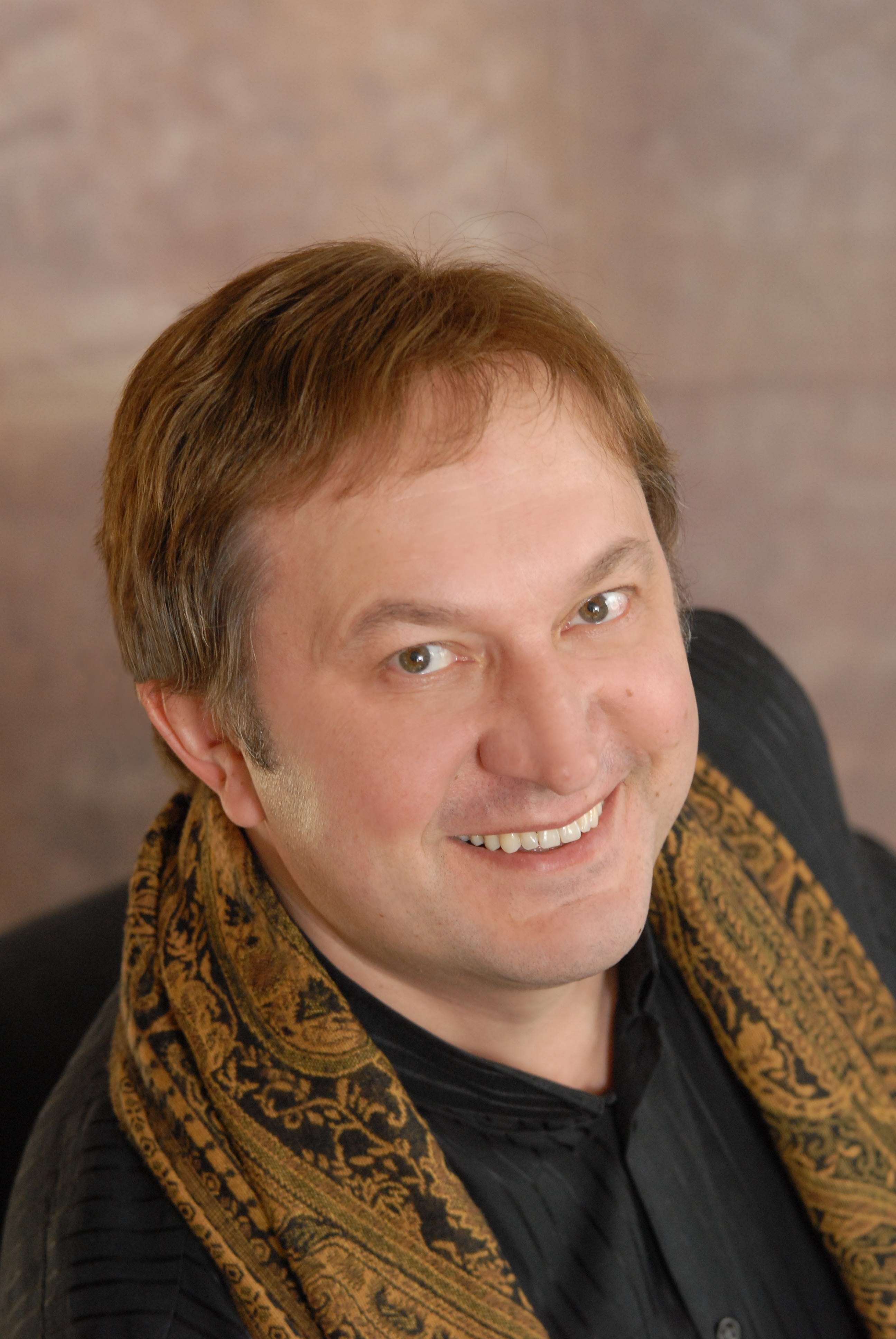|
Back
Schizoid Shostakovich New York
Isaac Stern Auditorium, Carnegie Hall
05/07/2012 -
“Spring For Music I”
Dmitri Shostakovich: Antiformalist Rayok – Symphony No. 11 in G Minor, Op. 103, “The Year 1905”
Mikhail Svetlov (Bass)
Houston Symphony, Hans Graf (Conductor)

H. Graf (© Courtesy of Houston Symphony)
If we title it (even with a second-rate double entendre), they will come.
Carnegie Hall’s yearly “Spring For Music” has enticed orchestras from the far corners of North America to come, perform, bring music that New Yorkers have never heard before. This year, orchestras from the dark ice-forests of Edmonton to the piston-packin’ plantations of Alabama are taking their instruments to Carnegie Hall. And just to guarantee a festive reception, gaudy scarves (or handkerchiefs) have been distributed to audiences to wave before the concert
As for notoriously blasé New Yorkers, the programs are honestly seductive. Even those who might ordinarily eschew alien regions like Milwaukee or New Jersey have been lured in by the repertoire.
Last night’s opener opened with the Houston Symphony playing a Russian work–they introduced to America during the middle of the Cold War in 1958 with Leopold Stokowski, as well as another work which (gulp) was essentially a piece of juvenilia by the same composer.
The bulk of the program was a strenuous exciting performance of Shostakovich’s “1905” 11th Symphony, a work to celebrate the beginning of the Russian Revolution (as his next symphony was “1917” for the climax.)
The piece is a gargantuan conception with everything but subtlety. The martial airs ring out, the drums pound, the cymbals clash. Revolutionary tunes are blared out, resonate in the bass, and (almost like a Schoenbergian tone-row) are turned around, played upside-down and backwards.
Almost in spite of itself–in spite of its pictorial titles, its blaring tunes, its length–the 11th Symphony can be extremely moving. That was the way Hans Graf conducted it. The “dawn” opening didn’t zip along, but he held it with a taut steady hand.
And then the 107-year-old “Occupy Moscow Square” began the clangors reverberated through Carnegie Hall, those Houston brass players controlled but as loud as a cataclysmic clash can be. (One couple was plainly annoyed at the stochastic racket, and walked out, probably thinking “We were under the impression this was going to be a serious concert.”)
Mr. Graf, following the most prestigious conductors of this near-100-year-old orchestra, was not averse to the haunting slow movement lyricism, an example of the composer at this most sheerly lovely. But this was still a martial symphony, and the Maestro returned to crashes, clangor and sheer energy.

M. Svetlov
The preceding Shostakovich bagatelle was basically a high school jape by Mr. Shostakovich, a fictional sarcastic meeting of the Russian Composers Federation. The “four” speakers (all portrayed by Mikhail Sveltov with different hats) lectured how Russian music be “elegant”, “beautiful” and “realistic”
“Realistic composers write about real things,” intones one of the speakers. And if they don’t says one faux-lecturer, they should be sent to the Gulags!
To this, a men’s chorus, the non-players of the Houston Orchestra, react with huzzahs, Russian folk tunes and finally with Cossack dances.
The composer’s ridicule was not an acerbic Shostakovich scherzo, and was quite silly. Shostakovich didn’t put his name to it, not through fear but perhaps it was perhaps not worthy of him.
Then again, the great bulk of the composer’s work was in that category of “people’s music”, and while some want to show that his was an ordeal, he wrote his Tea For Two, his Song of the Forests and the string quartets with the same honesty and passion.
Mr. Svetlov obviously enjoyed the little farce, but his rich voice was not as important as his characters. The abbreviated Houston Symphony tried their best, but it was left to the 11th Symphony to show that this is a very powerful ensemble.
Harry Rolnick
|